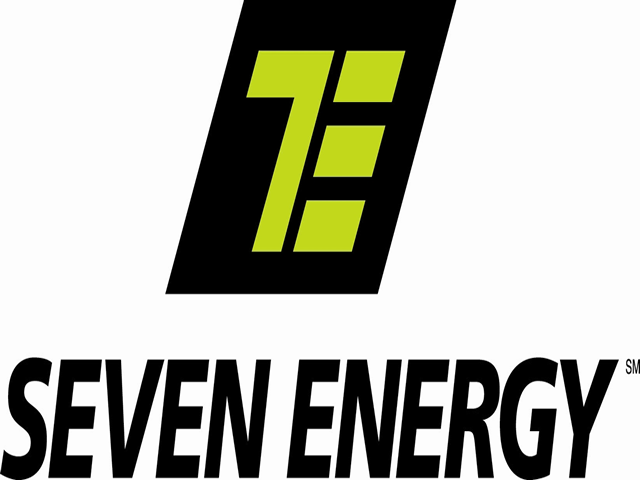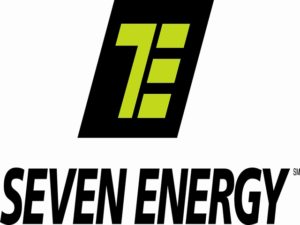Economy
Fitch Drops Seven Energy to ‘RD’


By Modupe Gbadeyanka
The Long-Term Issuer Default Rating of Nigeria-based Seven Energy International Limited has been downgraded to ‘RD’ from ‘C’ by Fitch Ratings.
This followed Seven Energy’s announcement that the 30-day grace period has expired for the cash interest payment the firm missed on its $300 million secured notes and $100 million notes due 2021.
It was gathered that the company could not meet the conditions for the interest capitalisation.
The expiration of the grace period was an event of default under the notes’ terms.
However, Seven Energy is holding talks with its creditors to agree a standstill on its debt service obligations.
The company is also discussing a comprehensive financial restructuring with its existing and potential lenders and investors.
According to Fitch, it simultaneously affirmed the wholly owned subsidiary Seven Energy Finance Limited’s $300 million 10.25 percent senior secured notes due 2021 at ‘C’ with an ‘RR6’ Recovery Rating.
All Seven Energy’s oil liftings from oil mining licences (OMLs) 4, 38 and 41 under the strategic alliance agreement (SAA) with the state-owned Nigerian Petroleum Development Company Limited (NPDC) have stopped since February 2016, as the Forcados oil pipeline and terminal remain shut due to the threat of militant attacks.
Earlier in 2017, Seven Energy announced that NPDC intends to terminate the SAA unless the company meets outstanding cash calls. Seven Energy has taken steps to preserve its contractual rights under the SAA, but there is a risk that this once key cash-generating asset will remain largely unavailable.
Near-term cash flows from the company’s gas business remain weak as sale volumes are volatile and the company’s major gas off-takers, Nigerian state-owned power stations, delay payments for consumed gas.
In April 2017, Seven Energy reported delays in finalisation and effectiveness of the World Bank partial risk guarantee (PRG), which is meant to compensate Seven Energy for up to $112 million of gas supply invoices to Calabar power station, its principal gas off-taker.
The company currently expects the PRG to be finalised soon, after approval from the Nigerian authorities is obtained and the PRG could be called 90 days after its finalisation. Finalisation of the PRG would be positive, but we do not expect it to materially improve the overall payment discipline for Seven Energy’s gas business.
Longer term, the natural gas business in Nigeria’s southeast is an important growth driver for Seven Energy, which is on track to ramp up gas sales to over 150 million cubic feet per day.
Following the completion of the power grid, local power stations including Calabar can now run at full capacity. On the other hand, power stations continue suffering from stretched liquidity and poor receivables collection, and are delaying their payments to the company.
Seven Energy’s midstream gas infrastructure assets are fully ring-fenced and serve as security for the company’s $385 million Accugas loan.
There is a risk that the Accugas lenders may decide to enforce the security on the gas assets, stripping the company of its presently main cash-generating asset and effectively forcing it into liquidation.
Seven Energy’s natural gas revenues are US-dollar pegged but are received in Naira. Nigerian companies, including Seven Energy, are facing difficulties exchanging Naira into US Dollars, which the company needs to service its US-dollar debt, at the official exchange rate.
To alleviate the problem, the company is currently negotiating with lenders to convert the Accugas facility into naira and extend its maturity. The naira convertibility issue negatively affects the company’s liquidity as long as Forcados remains shut, as the company receives little US dollar revenue from its other operations.
Economy
FAAC Disburses 1.727trn to FG, States Local Councils in December 2024

By Modupe Gbadeyanka
The federal government, the 36 states of the federation and the 774 local government areas have received N1.727 trillion from the Federal Accounts Allocation Committee (FAAC) for December 2024.
The funds were disbursed to the three tiers of government from the revenue generated by the nation in November 2024.
At the December meeting of FAAC held in Abuja, it was stated that the amount distributed comprised distributable statutory revenue of N455.354 billion, distributable Value Added Tax (VAT) revenue of N585.700 billion, Electronic Money Transfer Levy (EMTL) revenue of N15.046 billion and Exchange Difference revenue of N671.392 billion.
According to a statement signed on Friday by the Director of Press and Public Relations for FAAC, Mr Bawa Mokwa, the money generated last month was about N3.143 trillion, with N103.307 billion used for cost of collection and N1.312 trillion for transfers, interventions and refunds.
It was disclosed that gross statutory revenue of N1.827 trillion was received compared with the N1.336 trillion recorded a month earlier.
The statement said gross revenue of N628.972 billion was available from VAT versus N668.291 billion in the preceding month.
The organisation stated that last month, oil and gas royalty and CET levies recorded significant increases, while excise duty, VAT, import duty, Petroleum Profit Tax (PPT), Companies Income Tax (CIT) and EMTL decreased considerably.
As for the sharing, FAAC disclosed that from the N1.727 trillion, the central government got N581.856 billion, the states received N549.792 billion, the councils took N402.553 billion, while the benefiting states got N193.291 billion as 13 per cent derivation revenue.
From the N585.700 billion VAT earnings, the national government got N87.855 billion, the states received N292.850 billion and the local councils were given N204.995 billion.
Also, from the N455.354 billion distributable statutory revenue, the federal government was given N175.690 billion, the states got N89.113 billion, the local governments had N68.702 billion, and the benefiting states received N121.849 billion as 13 per cent derivation revenue.
In addition, from the N15.046 billion EMTL revenue, FAAC shared N2.257 billion to the federal government, disbursed N7.523 billion to the states and transferred N5.266 billion to the local councils.
Further, from the N671.392 billion Exchange Difference earnings, it gave central government N316.054 billion, the states N160.306 billion, the local government areas N123.590 billion, and the oil-producing states N71.442 billion as 13 per cent derivation revenue.
Economy
Okitipupa Plc, Two Others Lift Unlisted Securities Market by 0.65%

By Adedapo Adesanya
The NASD Over-the-Counter (OTC) Securities Exchange recorded a 0.65 per cent gain on Friday, December 13, boosted by three equities admitted on the trading platform.
On the last trading session of the week, Okitipupa Plc appreciated by N2.70 to settle at N29.74 per share versus Thursday’s closing price of N27.04 per share, FrieslandCampina Wamco Nigeria Plc added N2.49 to end the session at N42.85 per unit compared with the previous day’s N40.36 per unit, and Afriland Properties Plc gained 50 Kobo to close at N16.30 per share, in contrast to the preceding session’s N15.80 per share.
Consequently, the market capitalisation added N6.89 billion to settle at N1.062 trillion compared with the preceding day’s N1.055 trillion and the NASD Unlisted Security Index (NSI) gained 19.66 points to wrap the session at 3,032.16 points compared with 3,012.50 points recorded in the previous session.
Yesterday, the volume of securities traded by investors increased by 171.6 per cent to 1.2 million units from the 447,905 units recorded a day earlier, but the value of shares traded by the market participants declined by 19.3 per cent to N2.4 million from the N3.02 million achieved a day earlier, and the number of deals went down by 14.3 per cent to 18 deals from 21 deals.
At the close of business, Geo-Fluids Plc was the most active stock by volume on a year-to-date basis with a turnover of 1.7 billion units worth N3.9 billion, followed by Okitipupa Plc with the sale of 752.2 million units valued at N7.8 billion, and Afriland Properties Plc with 297.3 million units sold for N5.3 million.
In the same vein, Aradel Holdings Plc remained the most active stock by value on a year-to-date basis with the sale of 108.7 million units for N89.2 billion, trailed by Okitipupa Plc with 752.2 million units valued at N7.8 billion, and Afriland Properties Plc with a turnover of 297.3 million units worth N5.3 billion.
Economy
Naira Trades N1,533/$1 at Official Market, N1,650/$1 at Parallel Market

By Adedapo Adesanya
The Naira appreciated further against the United States Dollar at the Nigerian Autonomous Foreign Exchange Market (NAFEM) by N1.50 or 0.09 per cent to close at N1,533.00/$1 on Friday, December 13 versus the N1,534.50/$1 it was transacted on Thursday.
The local currency has continued to benefit from the Electronic Foreign Exchange Matching System (EFEMS) introduced by the Central Bank of Nigeria (CBN) this month.
The implementation of the forex system comes with diverse implications for all segments of the financial markets that deal with FX, including the rebound in the value of the Naira across markets.
The system instantly reflects data on all FX transactions conducted in the interbank market and approved by the CBN.
Market analysts say the publication of real-time prices and buy-sell orders data from this system has lent support to the Naira in the official market and tackled speculation.
In the official market yesterday, the domestic currency improved its value against the Pound Sterling by N12.58 to wrap the session at N1,942.19/£1 compared with the previous day’s N1,954.77/£1 and against the Euro, it gained N2.44 to close at N1,612.85/€1 versus Thursday’s closing price of N1,610.41/€1.
At the black market, the Nigerian Naira appreciated against the greenback on Friday by N30 to sell for N1,650/$1 compared with the preceding session’s value of N1,680/$1.
Meanwhile, the cryptocurrency market was largely positive as investors banked on recent signals, including fresh support from US President-elect, Mr Donald Trump, as well as interest rate cuts by the European Central Bank (ECB).
Ripple (XRP) added 7.3 per cent to sell at $2.49, Binance Coin (BNB) rose by 3.5 per cent to $728.28, Cardano (ADA) expanded by 2.4 per cent to trade at $1.11, Litecoin (LTC) increased by 2.3 per cent to $122.56, Bitcoin (BTC) gained 1.9 per cent to settle at $101,766.17, Dogecoin (DOGE) jumped by 1.2 per cent to $0.4064, Solana (SOL) soared by 0.7 per cent to $226.15 and Ethereum (ETH) advanced by 0.6 per cent to $3,925.35, while the US Dollar Tether (USDT) and the US Dollar Coin (USDC) remained unchanged at $1.00 each.
-

 Feature/OPED5 years ago
Feature/OPED5 years agoDavos was Different this year
-
Travel/Tourism8 years ago
Lagos Seals Western Lodge Hotel In Ikorodu
-

 Showbiz2 years ago
Showbiz2 years agoEstranged Lover Releases Videos of Empress Njamah Bathing
-

 Banking6 years ago
Banking6 years agoSort Codes of GTBank Branches in Nigeria
-

 Economy2 years ago
Economy2 years agoSubsidy Removal: CNG at N130 Per Litre Cheaper Than Petrol—IPMAN
-

 Banking2 years ago
Banking2 years agoFirst Bank Announces Planned Downtime
-

 Sports2 years ago
Sports2 years agoHighest Paid Nigerian Footballer – How Much Do Nigerian Footballers Earn
-

 Technology4 years ago
Technology4 years agoHow To Link Your MTN, Airtel, Glo, 9mobile Lines to NIN












